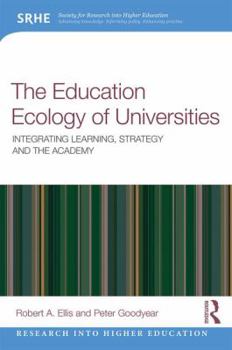The Education Ecology of Universities: Integrating Learning, Strategy and the Academy (Research into Higher Education)
Select Format
Select Condition 
Book Overview
Many universities around the world are finding that the structures and processes they have put in place to further their educational missions are being tested by rapidly changing circumstances. These changes involve new pedagogies, new course designs, new technologies and updating of the physical campus; reflecting diversifying student needs, growing student numbers, increasing competition and more demanding stakeholder expectations.
The Education Ecology of Universities examines these issues, starting with the challenges identified by university leaders who have responsibility for education, digital and campus planning. Sharing an analysis of in-depth interviews with more than 50 leaders, it identifies a range of conceptual and procedural gaps that undermine the full development and alignment of education, digital and campus strategies. The second half of the book provides practical ideas for taking a more holistic - indeed ecological - approach to understanding and improving university learning environments.
Setting out a case for a new applied science of educational ecology, this book offers foundational concepts and theoretical perspectives, introducing methods for analysing and evaluating teaching and learning ecosystems. It will be of interest to anyone who wants better ways of understanding how local systems function and can be improved. It is a must-read text for all leaders and researchers in education, and indeed for anyone concerned with the future of higher education.












